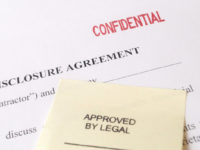If you’re a small-business owner with a website, one thing you need to think of that’s crucial to your business is your website’s speed. Speed is important now more than ever given people’s short attention span. If your customers have to wait for ages before they can get to the information they need – or shop on your website – they will leave. Or get angry. But don’t fret, there are ways to speed up your small-business website.
First up, check your website’s speed to see how long it takes to load. Google has a free test you can do but there are also others available out there. Take note of the time as ideally, it should load in under three seconds. If it’s not loading fast enough, here are some ways to speed things up.
Switch to mobile-responsive themes
Your customers are on their mobile devices all the time, that means if your theme isn’t mobile-friendly, it’ll be a really bad user experience for them. Text and images that are out of place, or even buttons that don’t work, are going to annoy your website’s visitors. These days, it’s not that hard to get a mobile-responsive theme. Almost all website themes are now mobile-responsive. But just to be sure, read up on the specs before using it or ask your developer to double check.
Use providers from Australia
There are heaps of cheap service providers out there for your hosting and a lot of them come from overseas. However, if you want to up your site’s speed, consider taking on a provider in your home country (aka Australia) and one that is reputable. Without getting technical, basically it’s best if your website’s hosting provider is in the same country as your small business.
Make sure you ask these questions before you move forward:
- What’s their customer service like?
- Can you contact them for help 24/7?
- Is their own website speedy and mobile responsive?
We’ve had clients on hosting providers that are dodgy and slows down their website so badly but they want to keep it because the owner is a friend. Decide wisely when choosing a company.
Watch your uploads
Everything that you add to your website adds to how fast or slow it is – images, videos, plugins, PDFs and so on. There are ways to ensure that the images and videos won’t affect your site’s speed but it might be too technical for you to do yourself. If your site requires a lot of videos, it is best to use a third-party platform like YouTube or Vimeo to host it rather than uploading it directly to your site.
Ask your developer to help you with it. Also ask them what you can do in the future to avoid lags when you upload fresh content. A good website designer will know how to create a good-looking website while thinking of the user experience and your website’s speed.
Lastly, your website needs to be HTTPS instead of just HTTP. There used to be concerns that having that extra encryption on your site slows down the speed but that’s not the case. It will also boost your ranking and lessen browser warnings. Google favours websites with SSL certificates so go get yourself one.
Brenda Gaddi, Digital Marketing Specialist, 3C Digital














